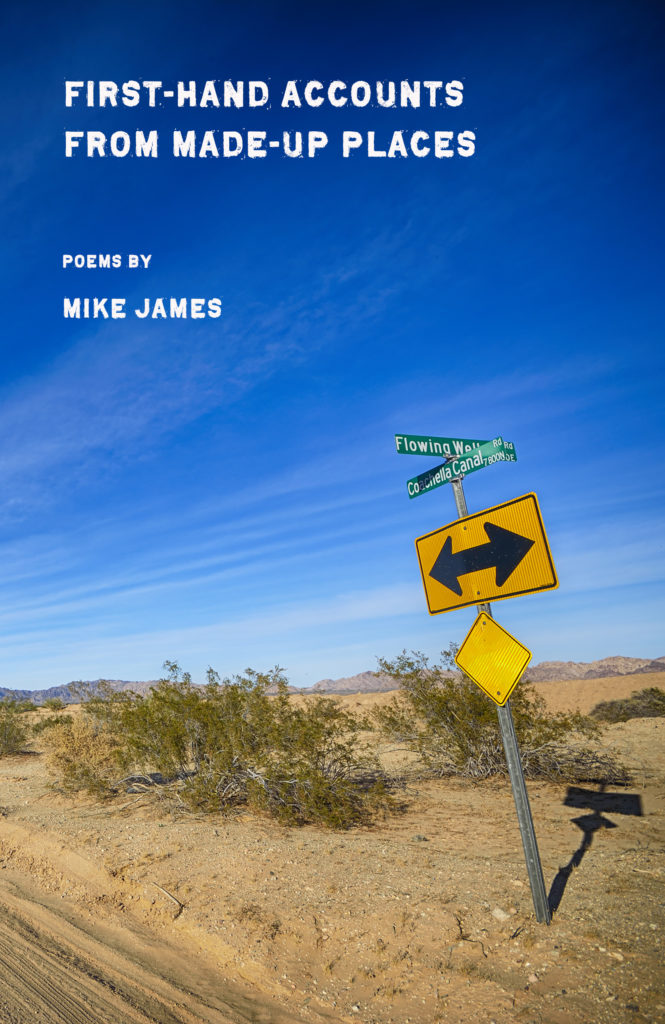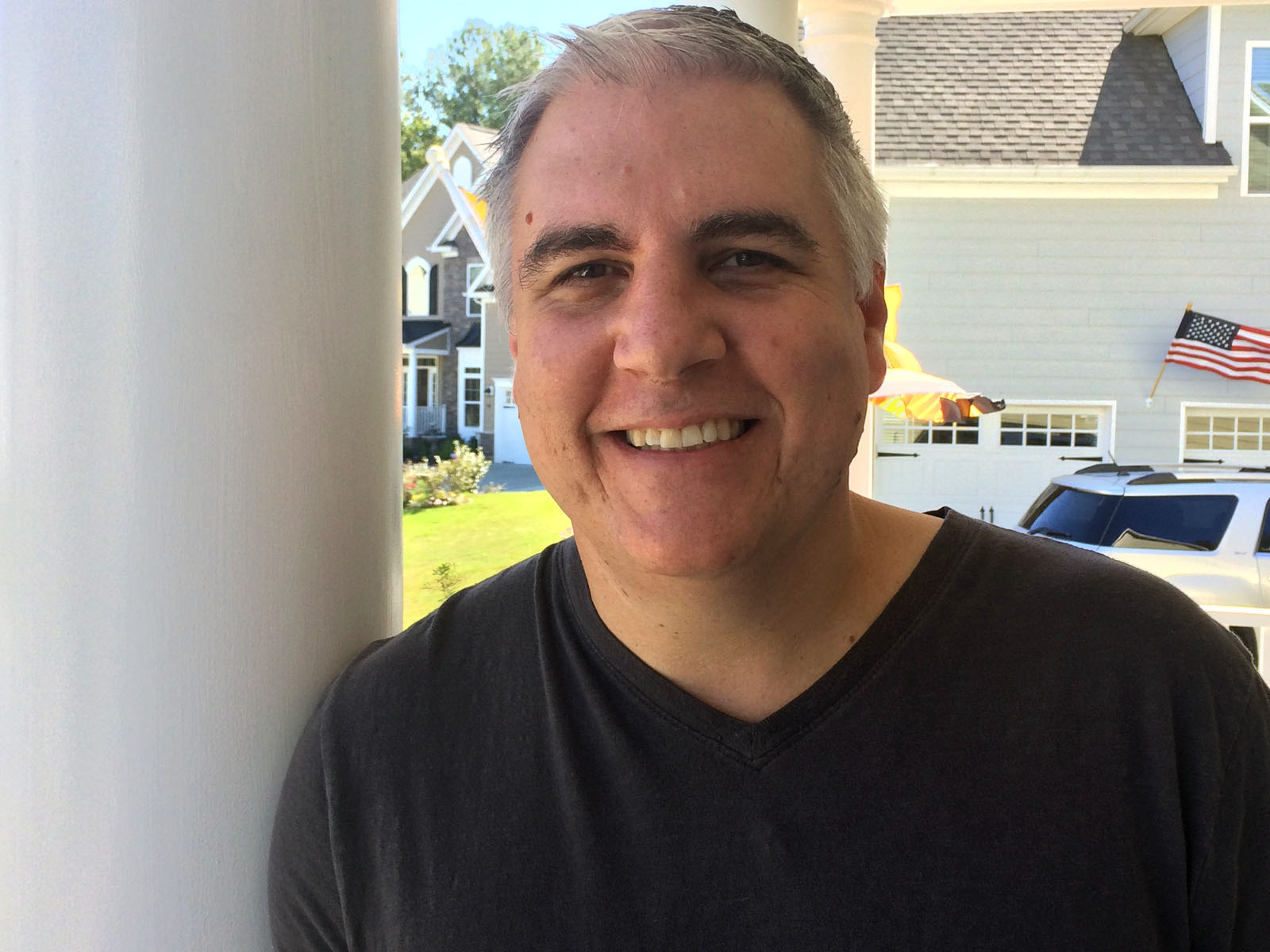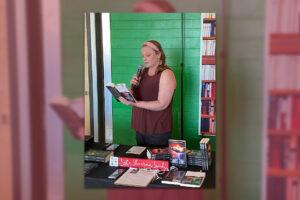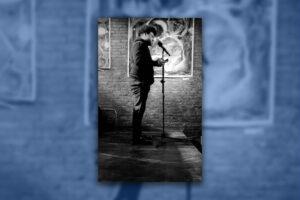Q. When I first read your new collection FIRST-HAND ACCOUNTS FROM MADE-UP PLACES it had a different title, you have 12 collections out, can you discuss the process of selecting a title?
A. I try out a lot of titles on friends to see what works because I’m an awful judge of my own work. I basically ask three questions. Does the title have a graspable image? Does it have a good sonic quality? And is it interesting enough that someone might pick it up in a bookstore? (That’s my one commercial consideration, which sounds funny for any book of poetry.)
 Q. The first poem in the collection, “Americanized Ghazals” is in a way an epic poem in both length and on the topic of personal history, the narrator being the hero. Can you discuss this poem, I love the piece, I have read it over a dozen times and each time I focus on a new idea?
Q. The first poem in the collection, “Americanized Ghazals” is in a way an epic poem in both length and on the topic of personal history, the narrator being the hero. Can you discuss this poem, I love the piece, I have read it over a dozen times and each time I focus on a new idea?
A. I’ve always been interested in ghazals as a form. I love the work Jim Harrison and Robert Bly did with them, as well as the work of poets like Rumi. That said, I struggled for years with the writing a successful one. Then I read with Don Wentworth in Pittsburgh and he read a few ghazals and talked about the form and how he came to write them and then everything seemed to “click” for me. I wrote one and then another and before long I had a sequence of 25. I discarded a lot of the poems within the sequence, but I kept them in the order I wrote with the idea that chronology creates a narrative. In a way, they are the most personal things I’ve ever written because I followed every image wherever it took me within the couplets and within the poems.
Q. In “My Investment,” you write: “Not one pharmacist in town will trade an aspirin for a haiku,” can you discuss why you continue to invest in poetry?
A. I love poetry. I love reading it. I love hearing it. And I love writing it. The best part about writing is following a line or an image to some unexpected place. I can’t imagine not writing. Also, I have no other discernable skills.
Q. “On Loss” is my favorite poem in this collection, you pack so much into such a brief piece, and I love the direction that the piece takes, can you discuss the ending?— “Some nights you crouched in the grass. Other nights you ran and ran.”
A. I’m really glad you like that poem. As I mentioned, I never really know what works. I throw a lot away, but I also try very hard to turn off the internal censor as a way to push myself in different directions. I never want to just do one thing. This might sound odd, but I really wrote that poem in an almost trance state. I wasn’t really thinking about anything when I wrote it. I had an image of a party and of a field and of a woman brushing her long hair and I wanted to find out how those images connected or if they connected at all.
Q. What are you reading right now? What do you look forward to diving into?
A. That’s a long answer. I always leave some people out because I read a ton of books. On my desk right now are new books by Ace Boggess, David M Taylor, Daniel Crocker, Roy Bentley and a biography (A Serious Character) of Ezra Pound. Outside of my desk, some of the people I want to keep up with are women poets who are truly creating amazing and innovative work. I’m thinking of Megan Volpert, Jordan Rice, Jennifer Bartlett, and Andrea Jurjevic to name a very few. And I didn’t even mention the poets I keep within arm’s reach like John Dorsey, Michael Wurster, Jeff Alfier, and Scott Silsbe.
Q. What projects are you currently working on?
A. Thankfully, I’m pretty busy. I have a manuscript of prose poems I’m finishing up. I’m also gathering pieces for a miscellany or sampler I’m putting together. (After 12 books, there are a lot of pieces which are uncollected or which have fallen through the cracks.) And finally, I have a book-length erasure poem I need to find a home for. I love to read and I love to write and I love to stay busy with new things.
Mike James has been widely published in magazines, large and small, throughout the country. His twelve poetry collections include: First-Hand Accounts From Made-Up Places (Stubborn Mule), Crows in the Jukebox (Bottom Dog), My Favorite Houseguest (FutureCycle), and Peddler’s Blues (Main Street Rag.) He has served as an associate editor for the Kentucky Review and Autumn House Press, as well as the publisher of the now defunct Yellow Pepper Press. He makes his home outside Nashville, Tennessee. More information can be found on his website at mikejamespoetry.com.





